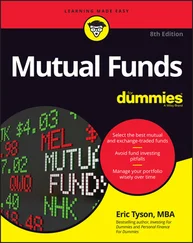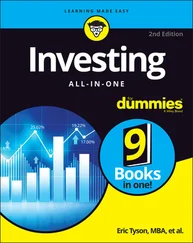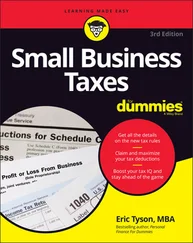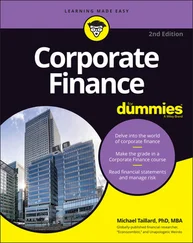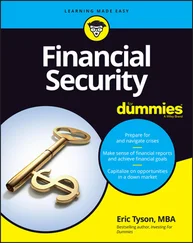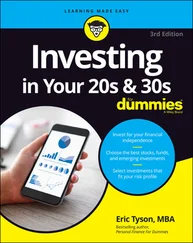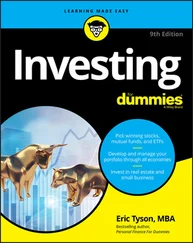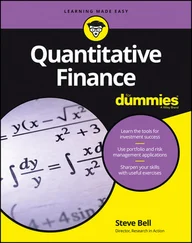This chapter discusses important themes that run throughout the book: the value of planning ahead and getting on the best path as soon as possible, the importance of taking personal responsibility, and the significance of taking a long-term perspective to make the most of your older years. We also discuss how to keep the right focus to optimize your retirement planning.
Planning for the Longer Term
Planning doesn’t sound fun, and for many people, it isn’t one of life’s most enjoyable activities. But nearly everyone values the benefits of proper planning: peace of mind, financial security, more options and choices, improved health, and a better lifestyle.
During your later adult years you have many choices about different financial issues. You can change some of the decisions after you make them, but others can’t be altered. If you do decide to make adjustments, you have fewer years to benefit from the new choices. That’s why as you approach your older years, planning your finances is more important than it was earlier in life.
In this section, we discuss the important issues that warrant your planning attention, explain why you should be the person to take the most responsibility for making that happen (even if you hire some help), and quantify the value of your taking our advice.
Identifying long-term planning issues
What’s on your mind (or should be on your mind) regarding your financial future? Consider how many of the issues in the following sections require long-term planning.
Choosing among an employer’s pension options
You need to look not just years but decades into the future to determine which pension option may best meet your needs and those of your loved ones. A pension is an employer-provided retirement benefit from money that your employer puts away on your behalf, wherein you receive a monthly payment based on your years of service and earnings. A pension typically is just one of several sources of retirement income you may have (the others typically being Social Security and personal savings including retirement accounts), so you must consider how these will fit together over many years.
Pensions (check out Chapter 7for more info) differ from other sources of income, such as 401(k)s, individual retirement arrangements (IRAs), profit-sharing plans, and employee stock ownership plans (ESOPs), mainly in that only pensions guarantee you a fixed monthly payment backed by your employer. With other types of retirement savings, the amount you receive in retirement depends on the amount you contribute and how you invest the account. (See Chapter 5for more info on other retirement accounts.)
Leaving an employer and deciding what to do with your retirement account money
When you change jobs, get laid off, or retire, you often are faced with choices about when and how to withdraw money from retirement accounts — such as 401(k)s or 403(b)s — and minimize the tax hit from doing so. Moving money is a decision you have to make today, but don’t make light of this decision because it affects how much money you’ll have in the decades to come.
 Some employer plans allow you to keep retirement money in place even if you’re no longer employed with the company. You may choose to accept the offer to keep money in place if it’s a plan with good investment options and low costs. Planning retirement account withdrawals requires long-term tax planning if you want to make the withdrawals in the best way possible. For more information on handling retirement accounts, see Chapter 5.
Some employer plans allow you to keep retirement money in place even if you’re no longer employed with the company. You may choose to accept the offer to keep money in place if it’s a plan with good investment options and low costs. Planning retirement account withdrawals requires long-term tax planning if you want to make the withdrawals in the best way possible. For more information on handling retirement accounts, see Chapter 5.
Determining whether you can afford to retire and how much you can safely spend per year
To assess whether you can afford to retire and how much you’ll be able to spend after you do retire, you have to do some analysis relating to your spending habits, temperament, and investing holdings. And, to be sure that you don’t run out of money or come close to running out of money, you also need to consider a wide range of scenarios for how your investments may perform in the years ahead. You can’t assume investments will return their historic averages each year. In fact, we’ve seen some stock indexes generate low returns or even negative returns over periods of a decade or more. See Part 2for more information on each of these issues.
 As with other aspects in life, differentiate between the things you can control and the things you can’t. The economy will go through recessions and the stock market will decline. Predicting their timing, depth, and duration is beyond anyone’s control. Although you can’t control these events, you can be prepared for them. Your plan should reflect that by having some flexibility and, if possible, a cushion. For example, you can control some of your spending and how much risk you take investing.
As with other aspects in life, differentiate between the things you can control and the things you can’t. The economy will go through recessions and the stock market will decline. Predicting their timing, depth, and duration is beyond anyone’s control. Although you can’t control these events, you can be prepared for them. Your plan should reflect that by having some flexibility and, if possible, a cushion. For example, you can control some of your spending and how much risk you take investing.
Deciding when to begin collecting Social Security
Deciding when to begin collecting your Social Security is a complicated decision that’s impacted by many factors, including tax laws, your earnings and your spouse’s earnings, your marital status, and your health, among others. As we discuss in Chapter 10, you have to look years and decades ahead to make an appropriate and successful decision.
Considering a reverse mortgage
Reverse mortgages are becoming increasingly popular to provide supplemental retirement income to cash-poor (and relatively house-rich) elderly. With a reverse mortgage, you receive payments (or a lump sum) from the lender. Interest on the loan (and fees) compounds, but the debt doesn’t have to be paid until the home is sold. When you consider taking out this type of mortgage, you should do plenty of long-term analysis to compare your options and be sure you’re getting the right one for your situation. See Chapter 8for the details.
Contemplating additional medical insurance
Health insurance is always a prickly issue to deal with because it’s difficult to know what medical issues you may be facing 5, 10, 20, or more years from now. Sure, you can gain a general sense from your parents and from the types of medical issues that aging adults confront, but only time will tell what unique issues you’ll confront. Different options you have to consider pre- and post-retirement are long-term care insurance (see Chapter 9for more info) and Medicare supplements (refer to Chapter 11).
Weighing the option to buy more or different life insurance
When others are dependent on your employment income, you may need some life insurance coverage. And, depending on your specific assets, the type of life insurance you may most benefit from may change over the years.
BE AWARE OF AND INVOLVED IN YOUR INVESTMENTS
Keeping a close eye on your investments and knowing what’s going on with your money is important, particularly during your senior years. You should never blindly trust someone with your money.
Consider the victims who lost tens of billions of dollars to hedge fund Ponzi-schemer Bernard Madoff, many of whom were near or in retirement. The prime targets of the Madoff scam (and of most financial scams) were people in their 50s and older who worry about their standard of living and income, though they’re what most people consider financially comfortable. Within this group was another target group: Entrepreneurs and successful professionals. Risk-taking usually is part of their personal profiles, and risk-takers often are attracted to unique and little-known strategies. That’s why con artists seek them.
Читать дальше

 Some employer plans allow you to keep retirement money in place even if you’re no longer employed with the company. You may choose to accept the offer to keep money in place if it’s a plan with good investment options and low costs. Planning retirement account withdrawals requires long-term tax planning if you want to make the withdrawals in the best way possible. For more information on handling retirement accounts, see Chapter 5.
Some employer plans allow you to keep retirement money in place even if you’re no longer employed with the company. You may choose to accept the offer to keep money in place if it’s a plan with good investment options and low costs. Planning retirement account withdrawals requires long-term tax planning if you want to make the withdrawals in the best way possible. For more information on handling retirement accounts, see Chapter 5.